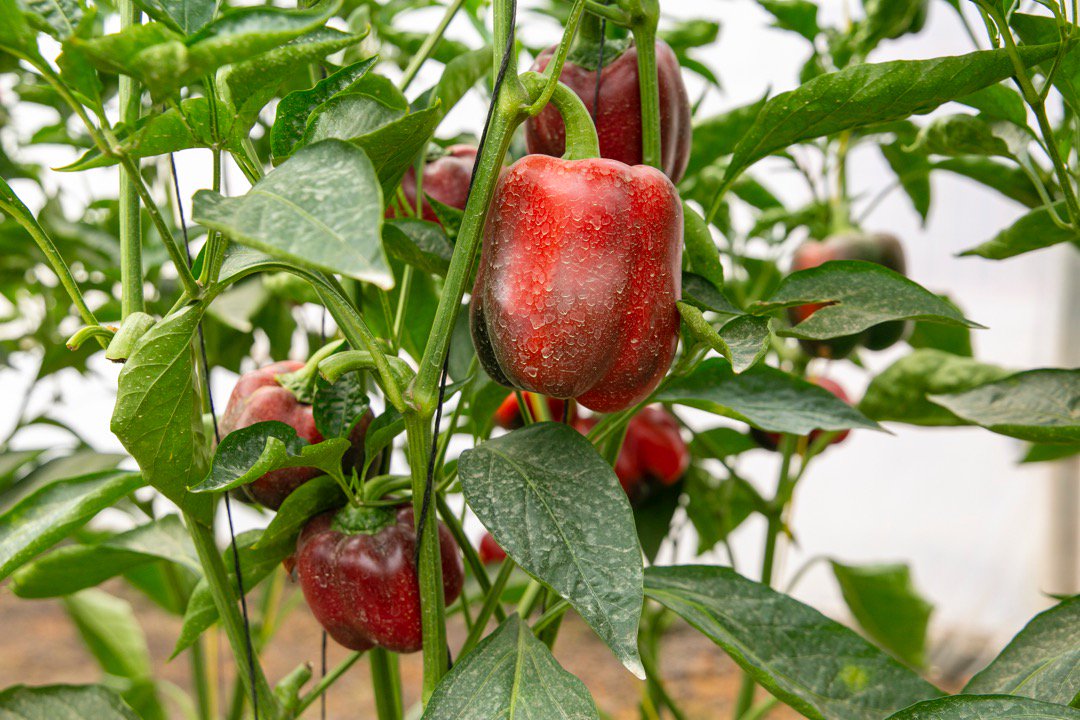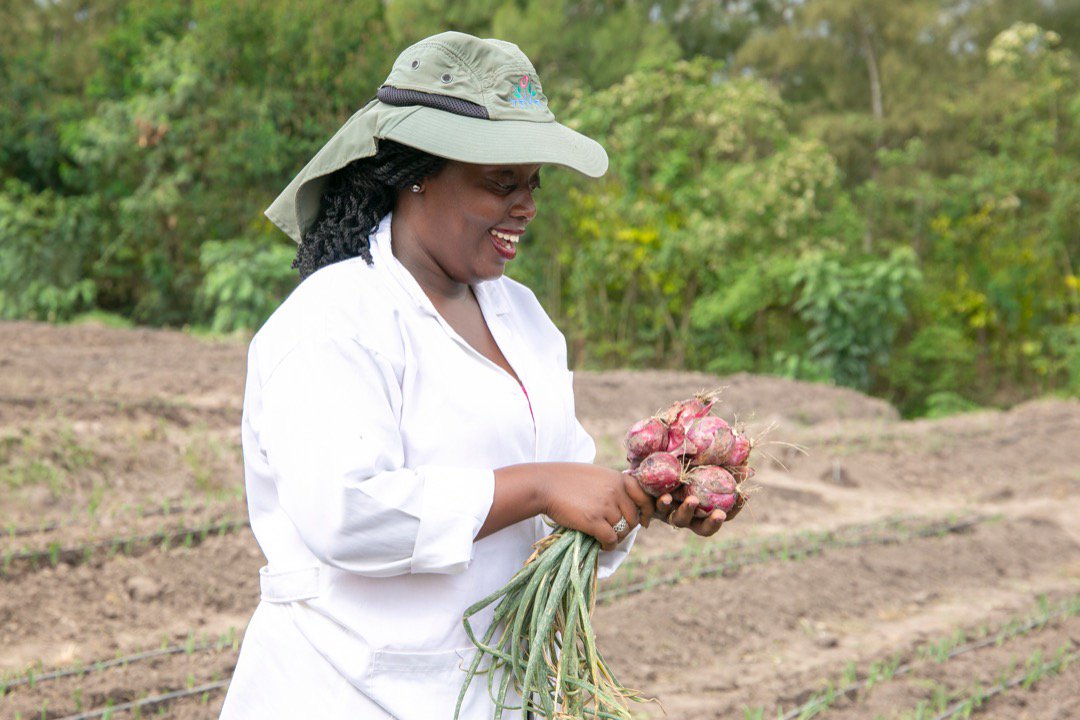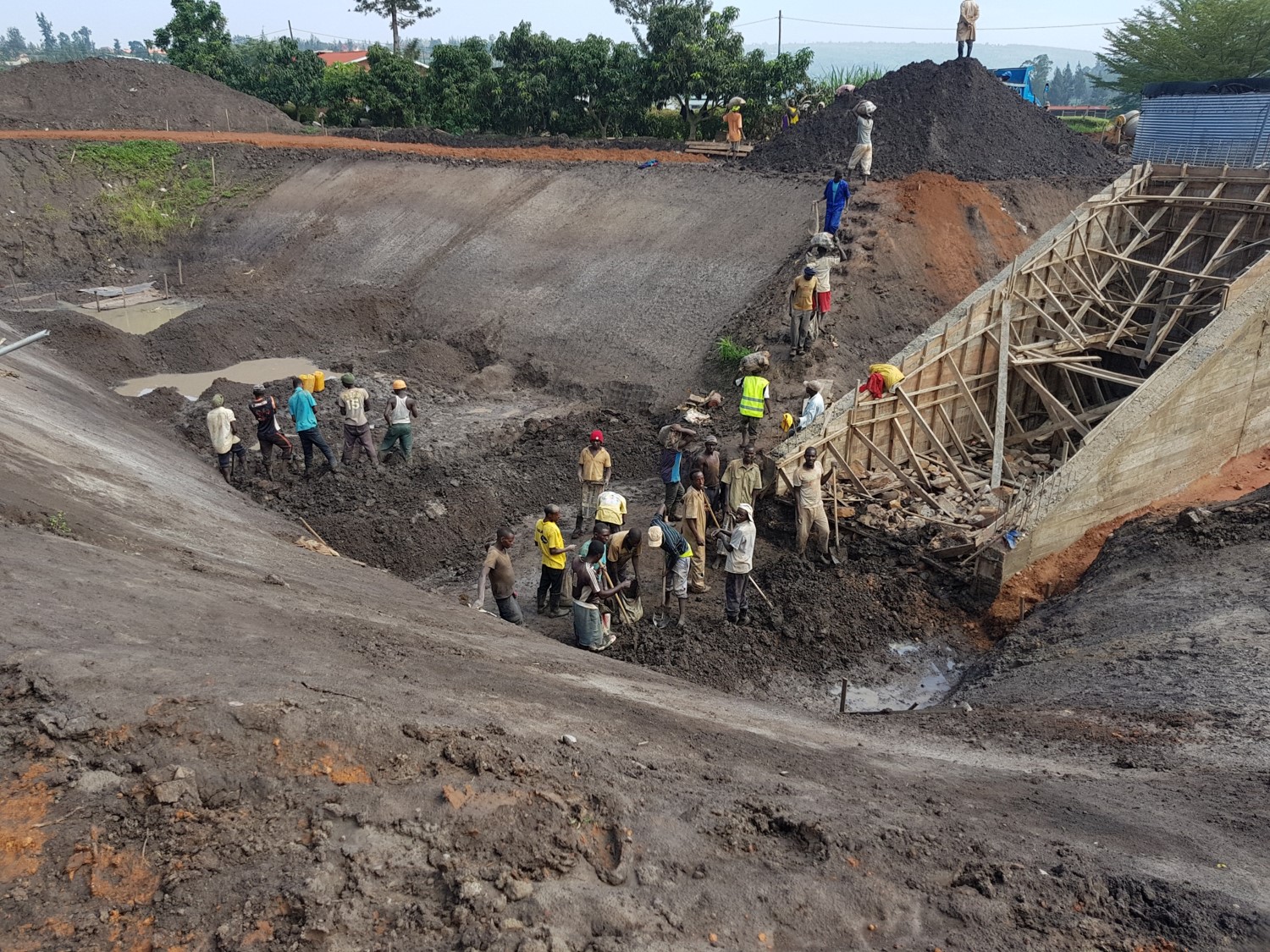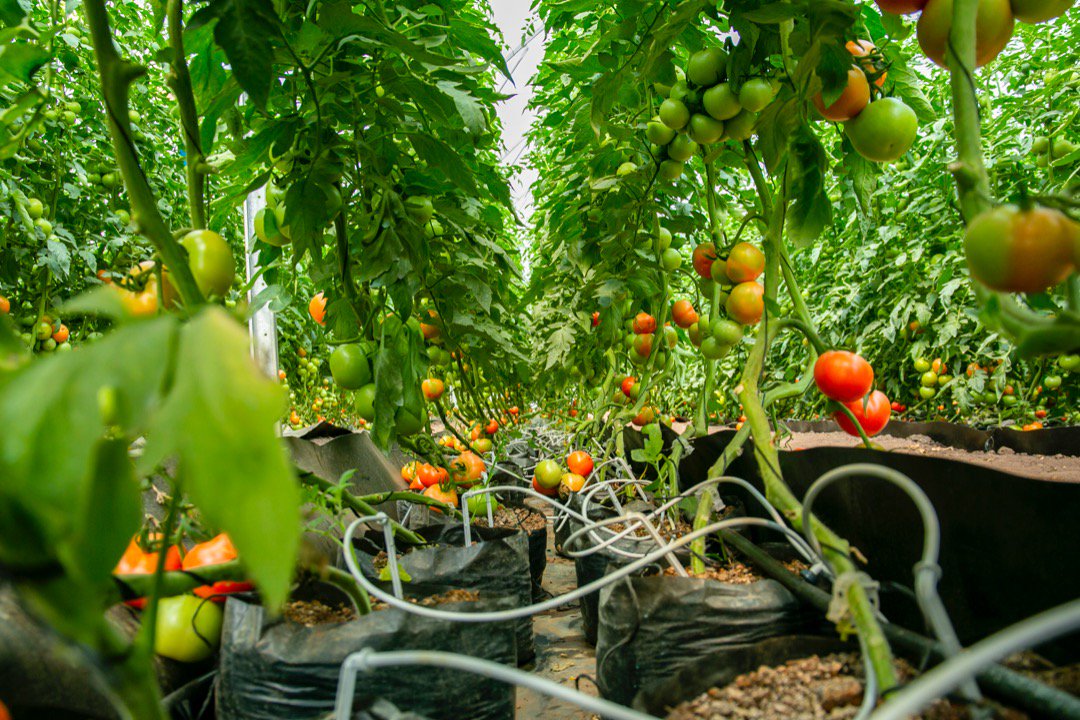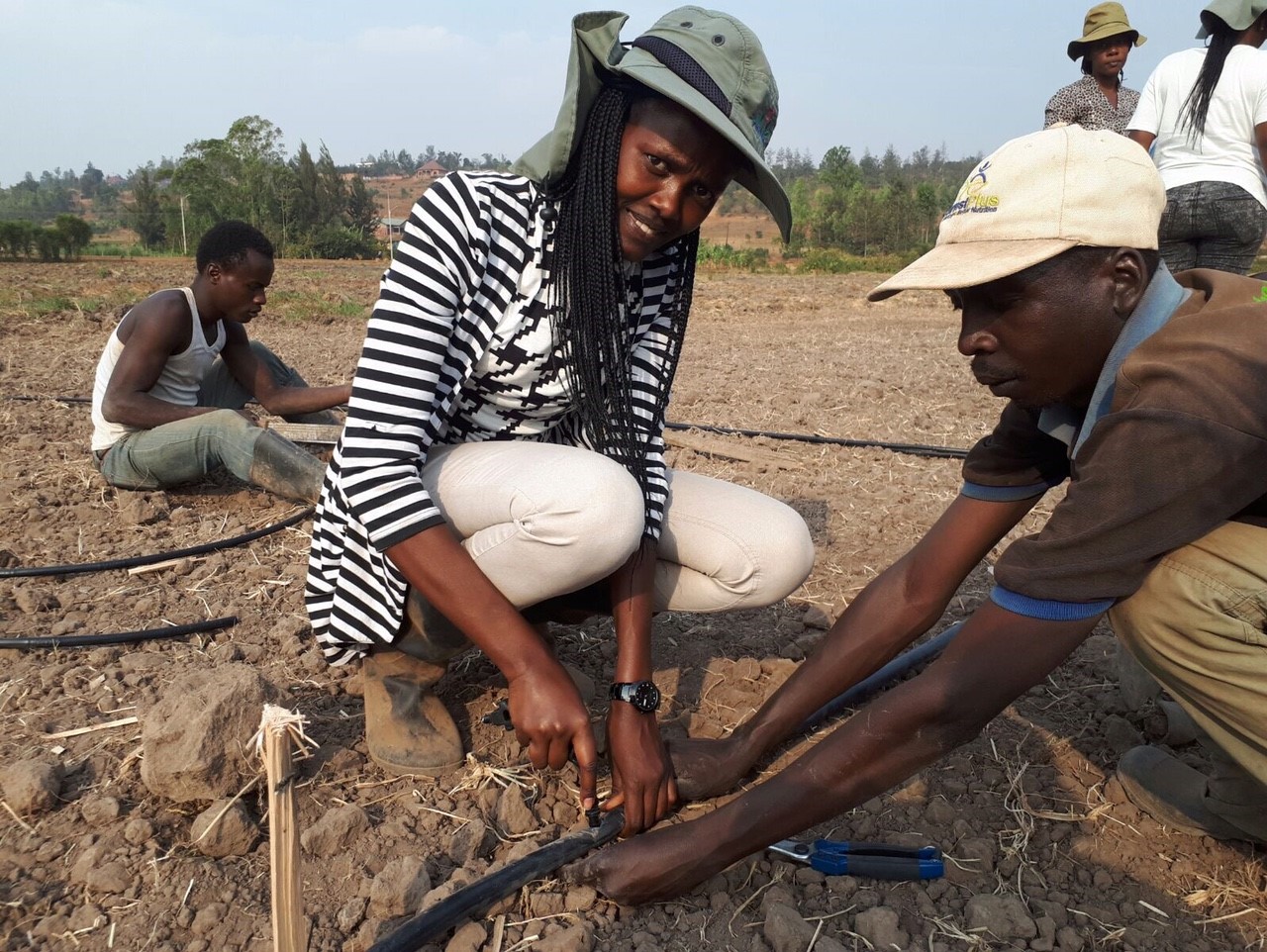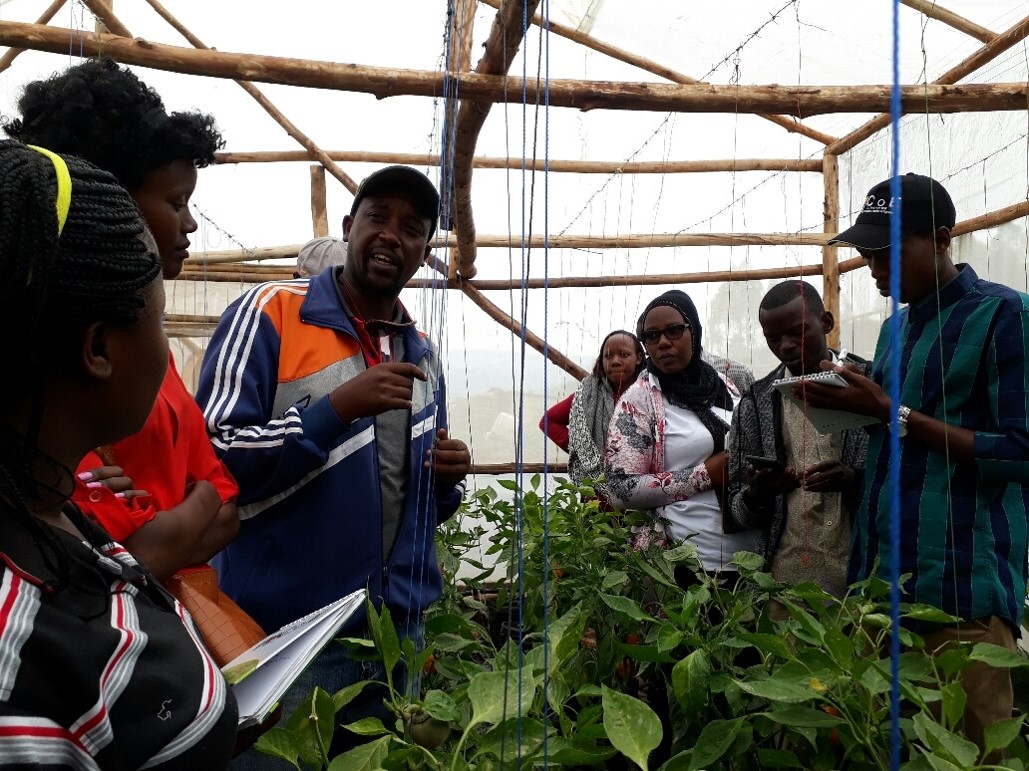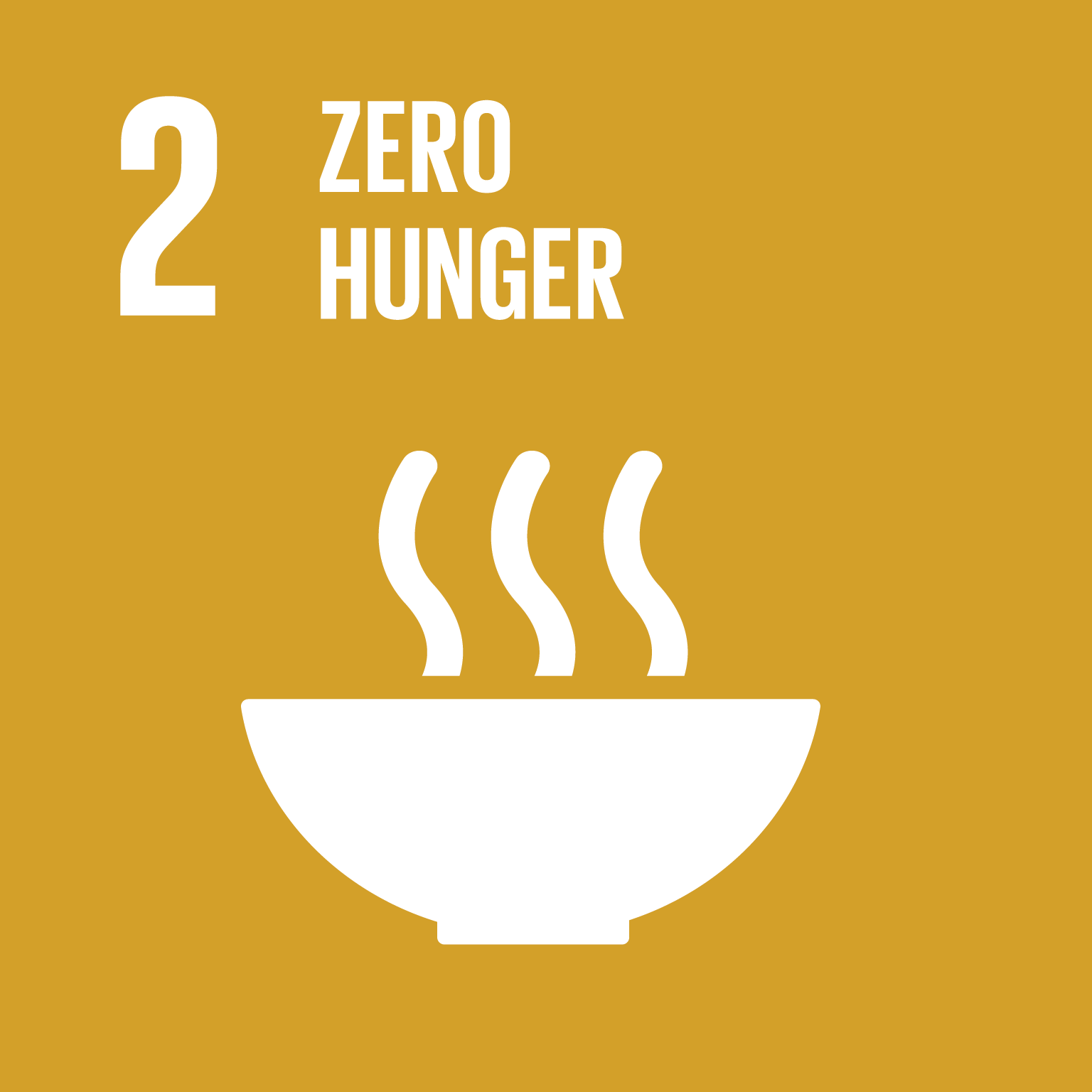 The Rwanda-Israel Horticulture Centre of Excellence
Establishing a regional horticulture demonstration centre of excellence for building local capacities and alleviating rural poverty
The Rwanda-Israel Horticulture Centre of Excellence
Establishing a regional horticulture demonstration centre of excellence for building local capacities and alleviating rural poverty

Challenges
Agriculture is considered the backbone of the economy of Rwanda, contributing significantly to the country’s GDP and employing over 80 per cent of the country’s labour force. Yet, it is characterized primarily by subsistence farming and low productivity, which relies heavily on erratic and unpredictable rainfall.
Transforming the agricultural sector in Rwanda is essential to further reduce poverty and drive economic growth. This would include the intensification of sustainable production systems in crop cultivation; the promotion of programmes for building technical and organizational capacity of farmers; the development of commodity chains and agribusiness, and the strengthening of the institutional framework of the sector at the national and local levels.
Towards a Solution
In its ”2013 Economic Development and Poverty Reduction Strategy II”, Rwanda gave a central role to developing the country’s agricultural sector. The Rwanda-Israel Horticulture Centre of Excellence was conceived as part of this strategy, which sees agriculture as a sector having great potential to reduce poverty and ensure that growth is inclusive. Rapid agricultural growth requires the introduction of new technologies and the dissemination of agricultural know-how, together with a strong emphasis on increased agricultural yields and crop diversification, particularly by smallholder farmers. To reach this goal, the centre was equipped with advanced horticultural technologies in order to provide a suitable platform for a rapid transfer of know-how on modern Israeli agro-technologies and agricultural best practices to farmers, as well as the introduction of improved quality varieties, applied agricultural R&D, capacity building in agriculture and agricultural entrepreneurship, including connecting farmers to agribusiness.
Aiming to tackle SDG 2 (Zero hunger) and achieve food security and improved nutrition and promote sustainable agriculture, based on the proven agricultural expertise of Israel, in 2014 the governments of Rwanda and Israel signed an agreement for the establishment of a Horticulture Centre of Excellence in Mulindi, near Kigali. The implementing partners are Israel’s Agency for International Development Cooperation (MASHAV) and the Ministry of Agriculture and Animal Resources (MINAGRI) of Rwanda.
The Rwanda-Israel Horticulture Centre of Excellence (HCoE) is based on the principle that agriculture as a sector has great potential to reduce poverty and ensure that growth is inclusive. Conceived as part of its national plan to modernize its agricultural sector (SDG Target 2.a), Rwanda outlined the need to stimulate agricultural growth by increasing agricultural production and income-generating activities (SDG Targets 2.3; 2.4), as well as by strengthening the technical skills of Rwandan researchers, extension agents and farmers, to create a cadre of local professionals who will, in turn, transfer the knowledge they acquired to promote local economic development and achieve the overall goal of alleviating rural poverty (SDG Targets 2.1; 2.a). Within this framework, the project also addresses several Istanbul Programme of Action (IPoA) priority areas, including: Enhancing productive capacity (Priority 1), Transferring modern agricultural and sustainable practices to ensure food security and rural development (Priority 2), Human and social development through training, water management, gender equality and empowerment of rural women (Priority 5), Addressing emerging challenges such as climate change and environmental sustainability (Priority 6), Mobilizing financial resources for development and capacity-building (Priority 7).
In order to achieve the agreed goals, MASHAV appointed a long-term Israeli expert who monitored the project for more than three years, from its construction phase until the centre became operational and fully managed by local experts.
The Centre provides a suitable platform for a rapid transfer of know-how on modern Israeli agro-technologies and sustainable agricultural best practices, among them, the introduction of improved quality varieties, production of vegetables in greenhouses, walk-in-tunnels, net houses and open areas. Moreover, capacity building also focuses on post-harvest techniques for improved quality and longer shelf life, modern irrigation and fertigation systems, which take into consideration adaptation to local conditions and farmers’ requirements, and agricultural entrepreneurship. Quality training and consulting and professional training programmes were conducted in both Israel and Rwanda.
From June 2016 to March 2020, the Centre of Excellence trained close to 1,500 agricultural professionals from government institutions, NGOs, higher learning institutions and private companies, students and farmers.
Since September 2017, about 49 varieties of 16 different types of vegetables have been tested in three cycles for adaptability to Rwandan conditions, and over 220,000 vegetable seedlings and 150 tons of vegetables have been produced during 2019-2020. The first modern source-plantation of mango, avocado and citrus under a drip irrigation system was established on three hectares for the purposes of demonstration and training, and for serving as a source for nursery quality materials (scions, rootstock).
The guiding principles of all of MASHAV’s projects are sustainability and replicability. MASHAV projects include establishing demonstration infrastructures, which serve as a platform for training, extension and transfer of new Israeli technologies, and are designed in host countries in cooperation with local and international partners, based on a training-the-trainers approach.
Following this concept, the Rwanda-Israel Horticulture Centre of Excellence was based on the existing Indo-Israel Agricultural Project model, which promotes the transfer of knowledge and capacity building through on-site demonstration, as well the establishment of agro-inputs, such as nurseries for the production of better seedlings and fruit and vegetable varieties. In April 2016, a delegation of agricultural experts from the newly established centre in Rwanda, and part of the Centre’s professional cadre, arrived in India to visit the Centres of Excellence established within the Indo-Israel Agricultural Project and examine the possible adaptation of the successful model to the centre in Kigali. This proven model can be replicated in additional geographical areas, with appropriate adaptation to local and specific conditions.
Contact Information
Countries involved
Supported by
Implementing Entities
Project Status
Project Period
Primary SDG
Primary SDG Targets
Secondary SDGs
Secondary SDG Targets
Similar Solutions
| NAME OF SOLUTION | Countries | SDG | Project Status | |
|---|---|---|---|---|
Accelerating the Transformational Shift to a Low-Carbon Economy in Mauritius Towards supplying 35 percent of the country’s energy needs with renewables by 2025 |
India, Israel, Uganda | 05 - Gender Equality 09 - Industry, Innovation and Infrastructure 13 - Climate Action | Ongoing | View Details |
Accelerator Labs Network Following collective intelligence methods to address emerging sustainability challenges and the growing demand for local solutions |
India, Israel, Uganda | 08 - Decent Work and Economic Growth 13 - Climate Action | Ongoing | View Details |
Accessibility of Financial Services and the Private Sector in Africa Maximizing the impact of financial cooperation on economic development and industrialization in Africa |
India, Israel, Uganda | 08 - Decent Work and Economic Growth | Completed | View Details |
Accessibility ToolKit Promoting accessibility as a cornerstone for inclusive digital development in Bangladesh. |
India, Israel, Uganda | 08 - Decent Work and Economic Growth | Completed | View Details |
Accessible Digital Textbooks Promoting inclusive education through Accessible Digital Textbooks |
India, Israel, Uganda | 10 - Reduced Inequalities | Completed | View Details |
